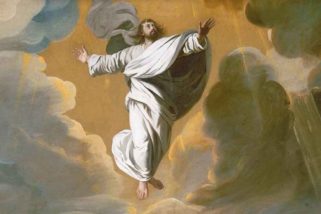There are legitimate reasons to doubt Jesus existed, even as a mundane man whose legend became exaggerated (which is, definitely, always plausible too). These reasons have survived peer review—twice. And yet a common fallacy deployed against this fact is that “no relevant experts take this seriously.” This is already a fallacy. Once there is a multiply-corroborated peer-reviewed challenge to a consensus, that means it’s substantial enough that the consensus needs to be re-examined on the new evidence and analysis presented. It might survive that examination. But you still have to do it. You can’t just say “no one takes it seriously” as an excuse to not even conduct that examination (see my remarks on this in What I Said at the Brea Conference).
Nevertheless, here I will dispatch the mere premise of this argument, the claim that “no one takes it seriously.” I will maintain here an ongoing list of all those bona fide exerts—scholars with actual and relevant PhDs (many of them even sitting or emeritus professors of the subject)—who do take it seriously. I previously had maintained this list in response to Bart Ehrman’s deployment of this fallacy. But the number of scholars who meet even his absurdly narrow criteria—and even more so any genuinely pertinent criteria—has grown so large it needs its own page now. So here it is.
In the following list I present in bold text those historians who either doubt the historicity of Jesus or have admitted to being agnostic about it (as in, they are unsure whether he existed or not). All the other scholars listed are convinced Jesus existed—they still don’t think “Mythicism” is probable (the idea that Jesus is entirely, and not just partially, mythical)—but they have gone on record admitting that at least some theories of the origin of Christianity without a real Jesus can be plausible enough that the debate is worth taking seriously, and not just dismissed out of hand as crackpot.
- Thomas Brodie. A now-retired professor of biblical studies who confessed his doubts in Beyond the Quest for the Historical Jesus: Memoir of a Discovery (Sheffield Phoenix 2012); see my discussion in Historicity News and Brodie on Jesus.
- Richard Carrier (myself). An independent scholar with a PhD in ancient history from Columbia University and multiple peer-reviewed publications, including the academic study On the Historicity of Jesus: Why We Might Have Reasons for Doubt (Sheffield Phoenix 2014). My colloquial summary, Jesus from Outer Space, outlines in simple terms the underlying logic of that peer-reviewed study. My anthology Hitler Homer Bible Christ includes all my pertinent peer-reviewed journal articles up to 2014. And my study of the methodology, which was peer-reviewed by professors of both mathematics and biblical studies (a requirement I set in my contract), is Proving History: Bayes’s Theorem and the Quest for the Historical Jesus (Prometheus 2012).
- Raphael Lataster. An independent scholar with a PhD in religious studies from the University of Sydney, who explained his doubts in his peer-reviewed assessment of the debate in Questioning the Historicity of Jesus (Brill 2019).
- Robert M. Price. An independent scholar with two pertinent PhDs, in Systematic Theology and New Testament Studies. He has multiple publications explaining his doubts, e.g. The Christ-Myth Theory and Its Problems (American Atheist 2012).
- Thomas Thompson. A retired yet renowned professor of biblical studies and second-temple Judaism, who originated the now-consensus doubts about the historicity of Moses and the Patriarchs, and explained his similar doubts about Jesus in The Messiah Myth: The Near Eastern Roots of Jesus and David (Basic Books 2009) and Is This Not The Carpenter? The Question of the Historicity of the Figure of Jesus (Routledge 2017).
- Philip Davies. A professor of biblical studies (now deceased) with a PhD in the field from Oxford, who publicly argued that doubting historicity was a respectable academic position; and then privately admitted that in fact he actually doubted the historicity of Jesus. This was posthumously confirmed by correspondence with Raphael Lataster and myself (e.g. see Lataster 2019).
- Hector Avalos. At the time a sitting professor of religion at Iowa State University (now deceased), with a PhD in Hebrew Bible and Near Eastern Studies from Harvard, who declared his agnosticism about historicity to me personally, and then publicly in the Ames Tribune on 2 March 2013.
- Arthur Droge. A sitting professor of Early Christianity, previously at UC San Diego and later the University of Toronto, with a PhD in the field from the University of Chicago, who explained his agnosticism at the 2008 Amherst conference on the historical Jesus, and in its associated 2009 article for CAESAR, “Jesus and Ned Lud[d]: What’s in a Name?”
- Carl Ruck. A professor of classical studies at Boston University, with a PhD in ancient literature from Harvard, who confessed his doubts on a Mythvision interview in May 2022 (in minute 31).
- David Madison. An independent scholar with a PhD in Biblical Studies from Boston University, who publicly confirmed his agnosticism in Q&A during the GCRR 2021 e Conference on the Historical Jesus.
- J. Harold Ellens. A professor of Biblical Studies at the Ecumenical Theological Seminary of Detroit (now deceased) with a history of numerous honors, publications, and positions in the field, including a PhD in Second Temple Judaism and Christian Origins from Michigan University. In Sources of the Jesus Tradition (Prometheus 2010) he repeatedly expressed his doubts as to the historical existence of Jesus (see comment for quoted examples).
- Herman Detering. A lifelong pastor and independent scholar with a PhD in theology and New Testament studies under Dr. Walter Schmithals at Humboldt-Universität Berlin. His doctoral dissertation argued that Paul was a rhetorical invention, and though he suspects Jesus existed in some sense, he conceded doubt still needed to be taken seriously.
- Zeba Crook. A professor of Religious Studies at Carleton University, with a PhD in theology (like Bart Ehrman, and most Biblical scholars nowadays) from St. Michael’s College. He defends the historicity of Jesus but has publicly explained that it’s nevertheless plausible to doubt or debate it (Facebook, 30 December 2017 and 2 January 2018).
- Kurt Noll. A sitting professor of religion at Brandon University, with a PhD in theology from the Union Theological Seminary in Virginia. He is a historicist who admits it’s nevertheless plausible to theorize Jesus might not have existed, as he explains in a chapter he contributed to Is This Not the Carpenter, “Investigating Earliest Christianity Without Jesus.”
- Emanuel Pfoh. A sitting professor of history at the National University of La Plata. He is a historicist who admits it’s nevertheless plausible to theorize Jesus might not have existed, as he explains in a chapter he contributed to Is This Not the Carpenter, “Jesus and the Mythic Mind: An Epistemological Problem” (cf. p. 92).
- James Crossley. A sitting professor of the Bible at St. Mary’s University with a PhD in the field from the University of Nottingham. He is a historicist who nevertheless wrote in the preface to Lataster 2019 that “scepticism about historicity is worth thinking about seriously—and, in light of demographic changes, it might even feed into a dominant position in the near future.”
- Justin Meggitt. A professor of religion on the Faculty of Divinity at the University of Cambridge with a PhD in New Testament Studies from Cambridge. He is a historicist who nevertheless concluded in a 2019 article in New Testament Studies (“‘More Ingenious than Learned’? Examining the Quest for the Non-Historical Jesus”) that questioning historicity “does not belong to the past and nor is it irrational” and it “should not be dismissed with problematic appeals to expertise and authority and nor should it be viewed as unwelcome.”
- Darren Slade. President of the Global Center for Religious Research, with a Ph.D. in theology and church history. He is a historicist who confirmed to me personally, and publicly at the GCRR 2021 eConference on the Historical Jesus, that questioning historicity nevertheless deserves to hold a respectable place in Jesus studies.
- Steve Mason. A professor of Ancient Mediterranean Religions and Cultures at the University of Groningen, with a PhD in ancient Judaism from St. Michael’s College. He is a historicist who has published on the historical Jesus but has nevertheless said that serious proposals that Jesus didn’t exist “should be considered and tested,” not rejected out of hand, and that “it may be” that Jesus didn’t exist (Harmonic Atheist, October 2020, at 28:30).
- Richard C. Miller. An adjunct professor of religious studies at Chapman University, with a Ph.D. in religion from Claremont Graduate University in LA and a prominent peer reviewed monograph in the field: Resurrection and Reception in Early Christianity (Routledge 2014). He is a historicist who nevertheless wrote a foreword supporting the Mythicist anthology by John Loftus and Robert Price, The Varieties of Jesus Mythicism: Did He Even Exist? (Hypatia 2021). There he declares there are only two plausible positions in the field now regarding Jesus: that he is entirely a myth, or nothing survives about him but myth.
- John Kloppenborg. A sitting professor at the University of Toronto with a Ph.D. in New Testament Studies. He has remarked that though he sees no reason to doubt the historicity of Jesus, he nevertheless doesn’t think the evidence is conclusive enough to render doubt preposterous (Mythvision, August 2022, minutes 7:30-11:00).
- Tom Dykstra. An independent scholar with a Ph.D. in the History of Renaissance Christianity who has nevertheless published peer reviewed works in New Testament studies. He is a historicist who nevertheless grants the plausibility of the mythicist position in a 2015 article for the Journal of the OCABS (“Ehrman and Brodie on Whether Jesus Existed: A Cautionary Tale about the State of Biblical Scholarship”). See my article Dykstra on Ehrman & Brodie.
- Francesca Stavrakopoulou. A professor of Hebrew Bible and Ancient Religion at the University of Exeter. She’s said the historicity of Jesus is only “possible” and not certain. Which means she either agrees mythicism is plausible, and thus debatable, or she is even an outright agnostic (Twitter October 2016).
- Burton Mack. A renowned professor in Early Christianity at the Claremont School of Theology in Claremont, California (now deceased), with a PhD in the field from the University of Göttingen. In a chapter he wrote for an anthology edited by Jacob Neusner, The Christian and Judaic Invention of History (Oxford University 1990) Mack recommends that experts pay more attention to Mythicist work (naming G.A. Wells specifically). Though Mack says it lies on the “fringes of the discipline,” he mentions it specifically as among things the field should be taking more note of (p. 24).
- Robert Funk. Though now deceased, his career included being a professor at the American School of Oriental Research in Jerusalem, executive secretary of the Society of Biblical Literature, and chairman of the graduate department of religion at Vanderbilt University (from which he also received his PhD in the field). In his article on “The Resurrection of Jesus” for The Fourth R 8.1 (1995), p. 9, Funk declares the existence of Jesus probable, but says, nevertheless, “I do not know for certain that Jesus really existed, that he is anything more than the figment of some overactive imaginations.”
- Gerd Lüdemann. Was a professor of New Testament at multiple universities and before his retirement held numerous prominent positions in the field, with an extensive publication record and doctorates in theology and New Testament from the University of Göttingen. In Jesus Mythicism: An Introduction by Minas Papageorgiou, when asked about it Lüdemann says that, although he is still convinced Jesus existed in some sense, “I do admire Arthur Drews and the Christ Myth theory is a serious hypothesis about the origins of Christianity.”
Which makes twenty–six relevantly qualified experts now who concur mythicism is at least plausible. Half of them are even outright doubters. There are surely many others who simply haven’t gone on the record—just like Davies, who feared backlash from admitting his doubt publicly while alive. If you find public statements placing any more scholars in either category, do let me know in comments below. Though please note that only scholars with relevant PhDs are to be listed here.



